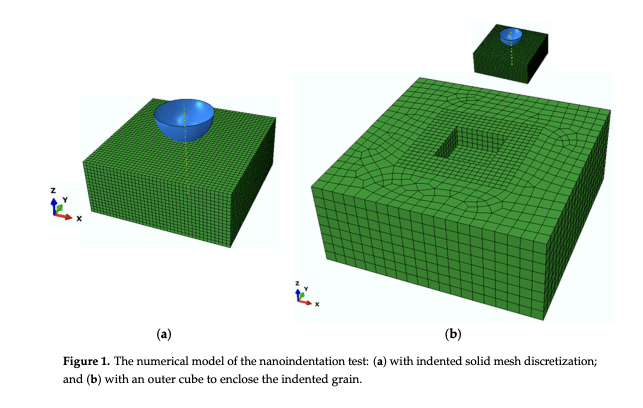
Robust Optimization Scheme for Inverse Method for Crystal Plasticity Model Parametrization
- Post by: Tobias Larsson
- 6th February 2020
- No Comment
Abstract
A bottom-up material modeling based on a nonlocal crystal plasticity model requires information of a large set of physical and phenomenological parameters. Because of the many material parameters, it is inherently difficult to determine the nonlocal crystal plasticity parameters. Therefore, a robust method is proposed to parameterize the nonlocal crystal plasticity model of a body-centered cubic (BCC) material by combining a nanoindentation test and inverse analysis. Nanoindentation tests returned the load–displacement curve and surface imprint of the considered sample. The inverse analysis is developed based on trust-region-reflective algorithm, which is the most robust optimization algorithm for the considered non-convex problem. The discrepancy function is defined to minimize both the load–displacement curves and the surface topologies of the considered material under applying varied indentation forces obtained from numerical models and experimental output. The numerical model results based on the identified material properties show good agreement with the experimental output. Finally, a sensitivity analysis performed changing the nonlocal crystal plasticity parameters in a predefined range emphasized that the geometrical factor has the most significant influence on the load–displacement curve and surface imprint parameters
Keywords
nanoindentation test, inverse analysis, trust-region-reflective algorithm, nonlocal crystal plasticity, geometry necessary dislocationm, BCC material
Citation
Shahmardani, M.; Vajragupta, N.; Hartmaier, A. Robust Optimization Scheme for Inverse Method for Crystal Plasticity Model Parametrization. Materials 2020, 13, 735. https://doi.org/10.3390/ma13030735
